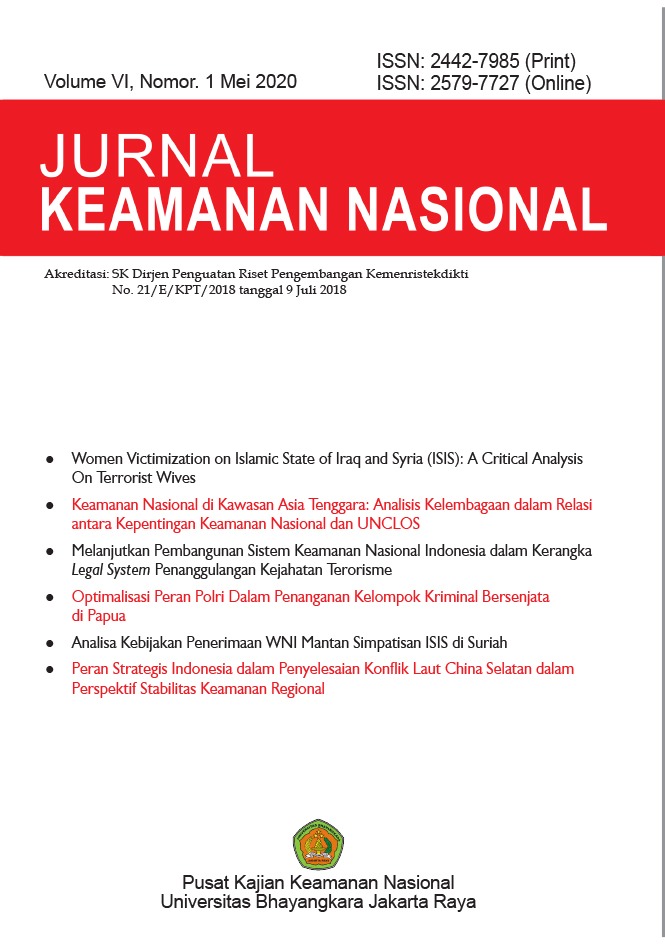Optimalisasi Peran Polri Dalam Penanganan Kelompok Kriminal Bersenjata di Papua
Keywords:
separatism, conflict, disintegration, optimizationAbstract
Prevention and overcoming separatism is an important part of the government’s agenda in realizing a safe and peaceful Indonesia. The implementation of development in all regions of the country within the framework of the Unitary State of the Republic of Indonesia is always accompanied by comprehensive efforts to prevent and overcome separatism. One of the complicated problems that still seizes a lot of attention from the nation and state of the Republic of Indonesia until now is undeniable is the separatist movement that developed in several regions of the Republic of Indonesia (NKRI). The separatist movement in Papua has now become an issue that has not yet found a solution based on a comprehensive and dynamic strategy in the context of adjusting to developments in Papua. Various police efforts have been and continue to be carried out in order to overcome the separatism of armed criminal groups (KKB) in Papua. This study aims to examine the extent of the role of the Police in efforts to combat separatism in Papua and measures to optimize that role.
Downloads

Downloads
Published
Issue
Section
License
Please read and understand the copyright terms for submissions to this journal.
Copyright Notice
The Jurnal Keamanan Nasional is under the Creative Commons Attribution 4.0 International (CC-BY 4.0) License, according to which:
1) Authors retain copyright and grant the journal the right to first publication, with the work simultaneously licensed under the Creative Commons Attribution (CC-BY 4.0) that allows the sharing of articles published with the acknowledgement of authorship and the initial publication in this journal.
2) The authors are authorized to make additional contracts separately for distribution of the version of the work published in this journal (for example, publication in an institutional repository or as a chapter of the book), as long as there is recognition of authorship and initial publication in this journal.
3) Authors are authorized and encouraged to publish and distribute their work online (for example, in institutional repositories or on their personal pages) at any time before or during the editorial process, as it increases the impact and reference of the published work.












